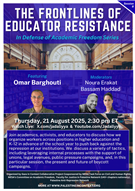Aesthetics Afterlives: Memory, Transfiguration and the Arts
9-10 September
Princeton University
Keynote Speaker: Jonathan Holloway,
Dean of Yale College and Professor of History and African American Studies
The last four decades have witnessed a phenomenal upsurge of interest in memory and memory studies. Spurred on by the unprecedented destruction of World War II, memory studies as many know it today has evolved in a largely Euro-centric context. But the last two decades have seen groundbreaking work in overcoming regional as well as disciplinary boundaries. Many scholars now reject the so-called "competition" model of trauma, which implicitly pits one community`s suffering against another, finding instead that the study of commemoration can affirm and encompass the full diversity of human experience and loss. Scholars have also taken new interdisciplinary strides, blending critical study of the arts with the study of memory as well as personal narrative, as our keynote speaker, Jonathan Holloway, does in Jim Crow Wisdom.
Recent developments in the study of memory, from Michael Rothberg’s Multidirectional Memory to Benjamin Stora’s La gangrène et l’oubli, highlight the struggle between the desire to remember and the need to forget, which has taken center stage in discussions about memory and its uses. Pierre Nora`s concepts of lieux and milieux de mémoire have inspired both praise and controversy regarding the relationship between memory and history; memory and space; and memory and artifacts in societies’ efforts to institute archives or commemorate important events. Between the preservation of sites of commemoration, such as Ground Zero and Parque de la Memoria, and the state-imposed silence on commemorative spaces under repressive governments, memory has become a much more self-conscious societal focus.
All these developments have strong aesthetic dimensions. The third annual conference of the Department of Comparative Literature at Princeton will undertake a two-day reflection on these issues of memory in artistic works and practice, broadly conceived. We see opportunities for new exploration of the way memory is preserved, transmitted, changed, resignified, and reinvented in works of art, and especially in "translation" from one work or medium to another.
We invite conference participants and community members to join us in considering such questions as: How is the memory of a war or violent event reconceptualized in aesthetic representations? How does kitchification transform the memory of an original event? How does mnemonic intertextuality change memories? How do artists transmit one another`s work, and extend one another`s reach (or their own) in posterity? In what ways does a painting or photograph establish the afterlife of its subject, or does a composer extend the life of a text or image "translated" into music? Can the various art forms do justice to one another? Can they do without each other? How do different translators re-write or change texts and memories? How does the artistic medium transform, change or adapt the memory of an event, experience, person or another work of art? What is the role of the scholar in the commemoration of the dead, and the living? How do issues of memory figure in the Public Humanities movement? These questions concern us not only as scholars, but also as citizens and human beings, and they can inform our approach to the scholar`s ideal role in society.
Potential papers might explore these subjects:
- Literature`s refiguration of the memory of specific events
- Translation and resignification of memories
- Ekphrastic "translation," comparative media, and intermedial transmission (e.g., poetry set to music)
- Musical compositions and their particular mode of transmission
- Resignifying mnemonic sites
- Memory and palimpsest
- Food as memory
- Memory and trace(s)
Submission Details:
Abstracts no longer than 500 words are due to Brahim El Guabli and Rachel Bergmann at comconf@princeton.edu by June 10, 2016.
Please include your full name, the title of your paper and your institutional affiliation in your abstract.
![[Image by SeducoCodus]](https://kms.jadaliyya.com/Images/357x383xo/ScreenShot2016-06-05at9.20.49PM.jpg)

















